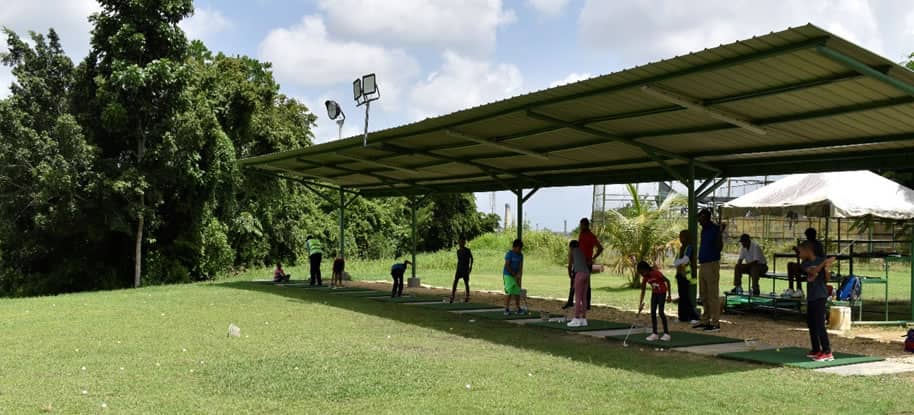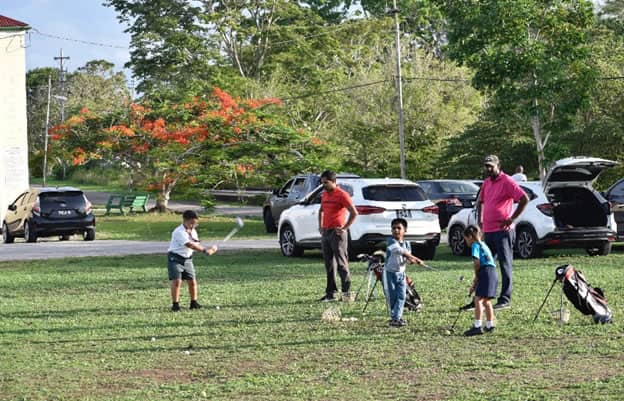
Kids and Sports
All children and teens should be encourage to play sports whether it’s the traditional football, cricket, athletics or the non-traditional sports such as lawn tennis, squash and the like. Since all the sports are unique in their respective skill set requirements, they all have the long term goal of developing an individual into an above average achiever. As a parent, we hope that our child is above average however many soon find out that expectation differs from reality.
In a major US survey, a sad statistic was revealed, approximately 70% of kids drop out of organized sports by the age of 13. The survey gave 3 main reasons:
- They no longer consider it fun. A major contributor is pressure from parents and or coaches to perform despite talent levels. Parents see the time and travel for coaching and games as a sacrifice on their time and their long term expectation is that their kids win or play on a winning team.
- Loss of ownership of the experience. Typically parents can’t help themselves from coaching on the side lines and this is seen as some sort of encouragement, a way for them to participate. While this may be helpful when they are learning the game but kids must be allowed to make their own on field decisions, try new ideas and make mistakes without criticism. The survey / study also found the one of the big appeals of video games to kids, is no one is standing over their shoulder criticizing their mistakes.
- Insufficient game time. Several surveys have indicated that 90% of kids would rather play on a losing team than sit on the bench. Therein lies the conundrum, kids want to play and parents want them to win. With the traditional sports, such football and cricket, the youth academies would have 20-30 age group players competing for 11 starting positions. The most skilful players would get lots of game time. The stark reality is that 10 -15 kids would hardly get any game time and that leads to disappointment and to subsequent non-interest. Similarly, consistently getting knocked out in the early rounds competitions such as lawn tennis also leads to long term non-interest.
Tell me more about golf
Needless to say golf is one of those non-traditional sports that is worthy of serious consideration. For many parents, little is known about golf, and if you permit me to enlighten you, perhaps I may change your pre-conceptions or even misconceptions about the sport of golf.
Golf is a sport that is steeped in tradition and has been around for over 600 hundred years. The first 18-hole modern golf course was built at St. Andrews, Scotland in 1764. Coincidently, the first golf club in Trinidad is also called St. Andrews and is currently located in the foothills of Maraval. It was formed in 1891. The PAP golf course was open as a 9-hole course in 1938 and later converted to an 18-hole course in 1960.
Golf is a low impact non-contact sport that promotes physical wellbeing, as well as excellent hand eye coordination while attaining social skills. The playing of golf by youths, encourages their development in mental and emotional attributes. Golf will prepare them for success.
At its most basic level, golf is not a team sport and therein lies the uniqueness of golf. Golf allows all individuals irrespective of age with a modicum of skill to compete in tournaments at most clubs. A round of golf consist of playing 18 holes. Skill level is determined by handicaps, and for simplicity, handicaps are based on your average score over several 18-holes rounds. The lower your 18-hole average score, the lower your handicap, the higher your skill level.
Stephen Ames is the most famous golfer to hone his skills as a junior at the PAP golf course. In 2006, he won the award for National Sportsman of the Year. After a successful career on the PGA tour, he competes on the Senior PGA Tour where in 2023, he achieved 4 wins and has already won twice in the 2024 season with several top 10 finishes. To date he has a gross winnings of + $30 million USD from tournament play on the PGA and Senior PGA tours. In years gone by, he facilitated junior competitions between youths of Canada and Trinidad. One of PAPGCL’s most prestigious tournaments, is called the Stephen Ames Cup, proceeds from which is used to promote junior golf.
At PAPGCL we have two 9 years-olds, who are products of the kiddie golf programme, that have won Monthly medal tournaments in 2024 against a field of 40+ seasoned golfers. Medal scores are based on how well you perform relative to your handicap. Thus, handicaps are the great equalizer. The majority of local tournaments are handicap based so you can literally play golf and compete from 8 – 80 years of age. As far as I am aware, the sport of golf that raises the most money for charities in Trinidad these include churches, schools, rotary clubs and several NGOs.
So how does golf specifically benefit my child?
Golf teaches a variety of social and emotional skills include the following:
- Responsibility : Kids learn to take care of their equipment , the golf course and to look out for fellow players
- Punctuality: Playing golf requires being on time all the time, especially for coaching sessions and in organized events.
- Etiquette: Learning to respect the rules, their equipment, their coaches, their playing partners. They will in due course demonstrate this trait both on and off the golf course. By the way, golf has an almost universal dress code.
- Patience: They will learn the value of waiting their turn to play and more importantly keeping quiet and still while doing so.
- Perseverance: The value of practicing to improve their skills.
- Self-control: When things don’t go their way, in time they will learn to keep their emotions in check and improve their ability to focus on executing the next task at hand. Growth in maturity is but assured.
- Honesty: They will be taught the value of integrity, fair play and importance of honest work.
Children can also develop many valuable workplace skills while playing golf. Some abilities include:
- Strategizing: As they become more proficient, they work out how to overcome on course challenges
- Decision making: For every shot they play, they will learn to take into account factors such as the lie of the ball, the effects of the wind, flag placement, the slope of the greens just to name a few
- Planning: In time they would learn how to deal with certain golfing situations based on past experiences and formulate a plan to overcome these challenges
- Working with numbers: They will develop the ability to mentally compute distances as their golfing skill level improves, accurately tally their score card and compute their net score.
- Accountability: They will learn to take ownership of their performance, be it their score or their behaviour, this trait promotes rapid development in maturity, a most important life skill.
So how do I get my child involved?

While it is true, that not all kids would develop into world class athletes, but kids in junior program at PAP can become sufficiently accomplished to compete in many local golf tournaments. The handicapping system allows kids as young as 8-9 years old with a handicap, to compete in PAPGCL month medal. They can also compete in the monthly medals at other clubs if their parents are so inclined to expose them. The PAPGCL currently has accomplished several juniors with handicaps of 2 or less, that are competing for selection at the national age group and senior levels.
Let me leave you with this ….
Almost without exception every person who was introduced to golf as an adult, wished that they were exposed to the game as a teen. As a parent, you have the opportunity to encourage your kids to play golf, a sport that they would most likely enjoy for the rest of their lives regardless of their talent level. I am by no means suggesting that kids should not be exposed to traditional sports in preference to golf, but exposing your kids to golf can open up a level of competiveness and enjoyment that can rival any sport.
For further information on the golfing junior program, contact the PAPGCL office @ 868- 478- 2294.
Roger Attai – Dir. of Communications
Pointe-a-Pierre Golf Club Limited July 31 2024
